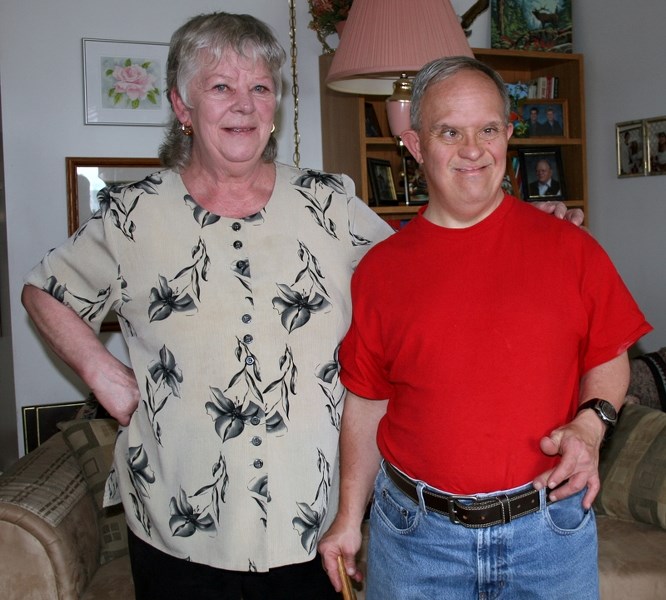After 25 years of living in a group home with 24-7 care, Robert Shank got an answer nobody in his family could comprehend.
The 50-year-old Westlock man lost more than half of his funding after being evaluated through the Persons with Developmental Disabilities (PDD) Northeast service providers Supports Intensity Scale (SIS).
The SIS tool is being used to determine each person’s level of support and the funding being allocated to their service providers. PDD acknowledged there are some errors and is currently working with organizations to correct the mistakes.
“What we just heard from PDD is that they’re making all of these big cuts,” his sister, Shirly Coles said. “Now he’s what they call moderately-low, as far as help goes. He’s going from a 168 hours a week (in care) to 40 … that’s a huge discrepancy.”
Shank was born with Down syndrome and has difficulty communicating with others.
“He can’t talk, but he understands,” said Coles. “He basically talks in one worded sentences and he whispers.”
Down syndrome is a developmental disability that causes physical and intellectual disabilities. It occurs when a person is born with an extra chromosome and causes cognitive delays, but the scope and severity of problems varies with each person.
“They’re saying it’s going to be implemented by July 1,” Coles added, “but I don’t see how that is going to happen.”
Shank is currently a client at the Westlock Independence Network, a service provider that cares for hundreds of disabled Albertans in the area.
Although Coles expressed concerns for her brother, she was unclear about what the future holds and plans to have Shank repeat the evaluation process on May 28. That means Shank may be able to secure the same kind of funding he’s accustomed to, allowing him to participate in regularly scheduled activities like walking and drawing.
And Shank’s 94-year-old mother is unable to care for him full-time either.
Thanks to his support staff, Shank works part-time as a newspaper carrier at the Westlock News, but he needs help to remember which houses he has been assigned. The group home offers that kind of care, along with help for all three residents to go grocery shopping.
However, Coles noted her brother needs time to process his surroundings. Shank has missed flights and refused to leave his group home during a fire alarm because he did not have the time he needed to draw.
“We don’t know what the options are yet,” Coles added.
“And in a lot of ways I agree. Families have to step up and do more, they can’t use this (program) as a babysitting service because there are a lot of clients getting more care than what they actually need. But they have to reassess and just see.”



